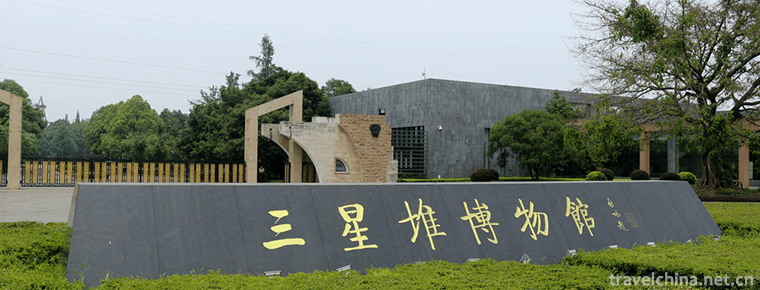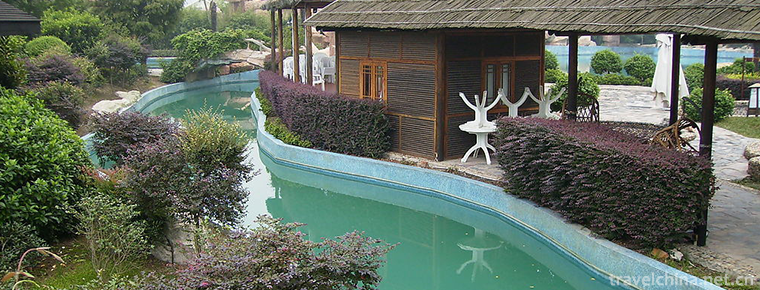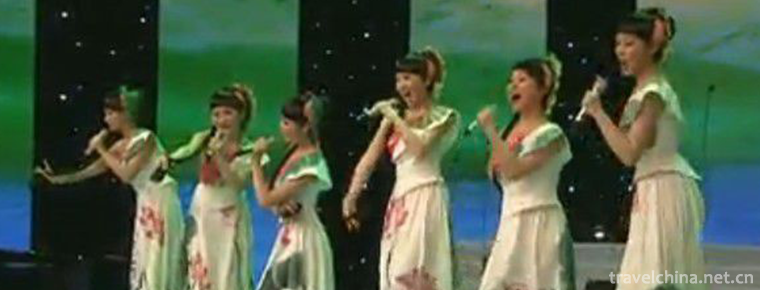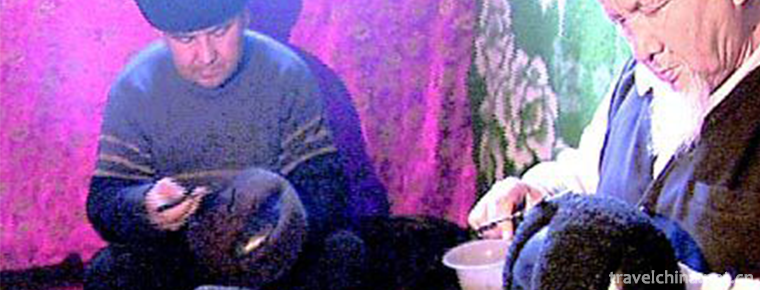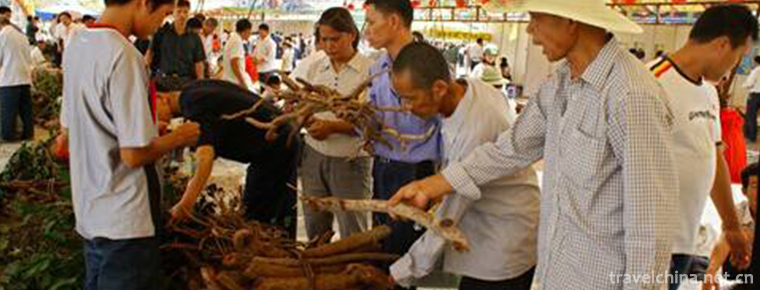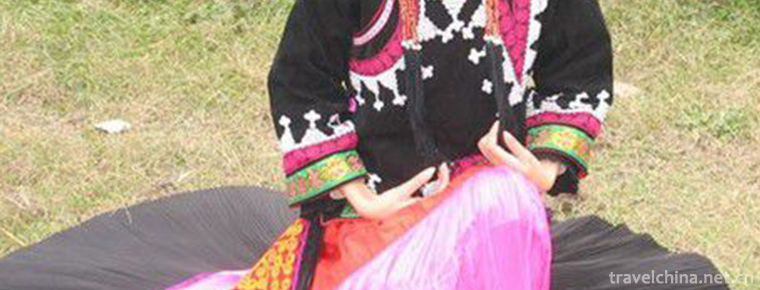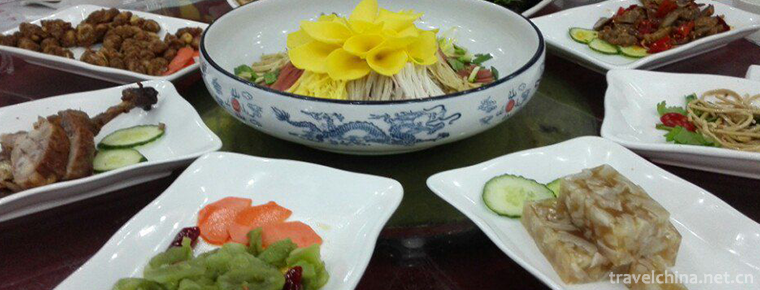Lichuan lantern song
Lichuan lantern song
Lichuan Lantern Song is a traditional folk dance that originated in Baiyang area of Lichuan City. Many folk songs in Lichuan Lantern Song and the ancient bamboo branch song inherit in one continuous line, which have high national cultural and artistic value. It has been recorded that from the Qing Dynasty, the masses sang lanterns and songs during the festivals, festive gatherings and dragon boats.
On May 23, 2011, Lichuan Lantern Song was approved by the State Council to be included in the third batch of national intangible cultural heritage list.
Historical evolution
Lichuan Lantern Song is an ancient folk song, which began in the early Qing Dynasty and has a history of more than 300 years. As the saying goes, "Thirty nights of fire, fifteen nights of light," Lichuan lantern songs and the Spring Festival customs are closely related. From the Qing Dynasty to the Republic of China, Lichuan people's custom of playing with lanterns rose widely, which was a collective recreational activity between festivals. Performers also dress up, commonly known as "lamp show", which has a little dramatic flavor.
After the founding of New China, the lanterns playing immortals and ghosts and a large number of lanterns singing about love were cancelled, but the Dragon lanterns, lions and lotus boats and car lights in the "last eight" and "miscellaneous lanterns" survived. In the Cultural Revolution, the lamp song stopped. Since the reform and opening up, although the performance of lotus boats and car lights has long lost its former brilliance, its performance time has gradually expanded from the New Year to all festive gatherings and leisure, from a custom to a popular cultural singing and dancing activities that can be carried out at any time.
artistic characteristics
Lichuan Lantern Song is a folk singing form of the Tujia people in Lichuan, which carries songs, dances and paddles the floor for the festivals and festivals, mainly with the dragon boats as props.
Representative works
"Dragon Boat Tune" is the representative work of Lichuan Lantern Song. Lichuan Lantern Song is the mother of "Dragon Boat Tune". Dragon Boat Tune, also known as Lantern Tune, Flower Lantern, Seed Melon Tune and Melon Seed Ren Tune, is a tune sung by the masses during the festival when they are rowing for lotus boats, and is a genuine Lichuan folk song.
In February 1956, Zhou Xuqing and Huang Yewei, cadres of Lichuan County Cultural Museum, collected seed melon tunes in Boyang and named them Dragon Boat Tunes. In March 1957, Wang Guosheng and Zhang Shuntang, peasant singers of Wangying Town, sang Dragon Boat Tune at the 2nd National Folk Music and Dance Competition held in Beijing, which won unanimous praise. In May 1962, "Dragon Boat Diao" was included in "Hubei Folk Songs Collection", which was released by the Central People's Radio Station. In 1979, Dragon Boat Tune was included in the Collection of Chinese Folk Songs. In recent decades, "Dragon Boat Tune" has landed on CCTV and the world stage many times. Wang Jieshi, Cheris, Wei Jindong, Meng Pigeon, Zhang Ye, Tang Can and other famous singers have sung one after another, with their charm and influence expanding. China's manned spacecraft also took it into space when it went into space. In 2004, Song Zuying sang a song "Dragon Boat Tune" in the Golden Hall of Vienna, which caused a sensation in the world music circle.
"Dragon Boat Tune" is only one of Lichuan's lamp songs, and "Dragon Boat Tune" is also mainly due to the collection and collation of the people's singing, so it is very famous. There are many representative works of Lichuan Lantern Songs, such as "Singing Mountain Songs for Lovers" and "Closing Eyes on a Sieve" which belong to the category of Lichuan Lantern Songs.
Inheritance significance
Lichuan is a treasure house of folk songs and dances, as well as national folk culture. There are many excellent national cultures waiting to be further excavated and sorted out. What is left behind by cultural heritage is not always good. We must learn to make the past serve the present, discard the dross and retain its essence, so that our cultural elements of national culture will continue to flourish.
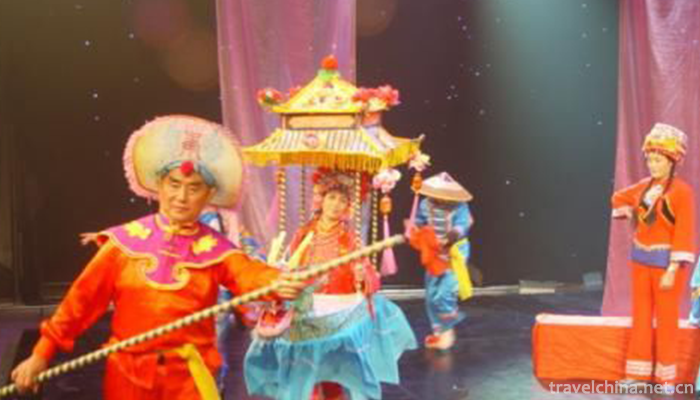
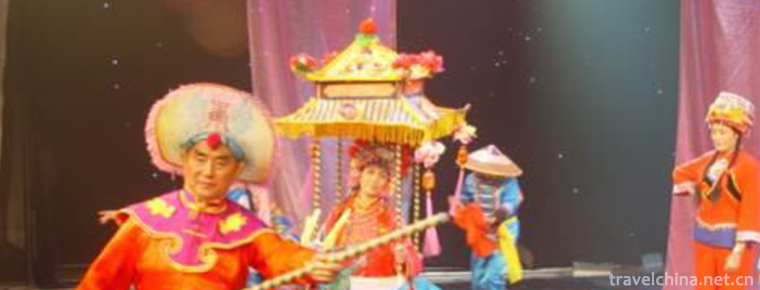
Lichuan lantern song
-
Shantou beef ball
Views: 501 Time 2018-11-02 -
Sanxingdui Museum
The Sanxingdui Museum was founded in August 1992 and opened in October 1997. It is located in the northeast corner of Sanxingdui Site, a national key cultural relic protection unit.
Views: 442 Time 2018-12-18 -
Golden Peacock Hot Spring Resort
Anhui Jinpeacock Hot Spring Resort is a commercial resort hotel which integrates vacation, fitness, leisure, entertainment, catering and accommodation. It covers an area
Views: 150 Time 2019-01-26 -
Kunlun Mountains
Kunlun Mountain, formerly known as Kunlunqiu, also known as Kunlunxu, is the god mountain in ancient Chinese legend, the ancestor of Wanshan Mountain, the birthplace of Chinese civilization, and the k
Views: 178 Time 2019-01-29 -
Qianjiang Folk Songs
Qianjiang folk song is a traditional folk song in Hubei Province. Popular in Qianjiang City, folk songs created by local working people in their work, life and customs. Its rich content,
Views: 307 Time 2019-06-10 -
Uygur Karakul fetus
There is a folk song "Turpan grape Hami melon, turtle's lamb a flower". Shaya Uygur Hatters use local lamb skin to make various hats, such as Duhuawa, Wuniqie and Dulikun, for people to buy.
Views: 197 Time 2019-06-26 -
Drug Market Customs
Pharmaceutical market is a trade fair held regularly in the centralized distribution center of traditional Chinese medicines with historical origin. There are more than 110 centralized distribution ce
Views: 225 Time 2019-07-11 -
Yi dress
The costumes of the Yi nationality are colorful, unique in style, and have nearly 100 kinds of shapes. Historically, because of the numerous branches and scattered residence of the Yi people, there ar
Views: 232 Time 2019-07-12 -
Really Different zhenbutong Making Skills of Luoyang Watermat
It's really different from Luoyang's water mat making skills. The traditional handicraft in Luoyang City, Henan Province, is one of the national intangible cultural heritages.
Views: 149 Time 2019-07-25 -
Anhui University
( Anhui University For short, "anda" is located in the provincial capital. Market It's the state. "Double First-Class" initiative "World class discipline construction," M
Views: 208 Time 2019-10-04 -
Introduction to Chinese embroidery
Embroidery, known as needle embroidery in ancient times, is a kind of technology that uses embroidery needle to guide color thread, embroiders the designed patterns on textiles, and forms patterns with embroidery traces. In ancient times, it was called "Juju" and "pinju".
Views: 121 Time 2020-12-12 -
Nanchong City honor
"Three products" strategy demonstration city of consumer goods industry, charming city with Chinese characteristics, national garden city and excellent tourism city in China
Views: 309 Time 2020-12-17

